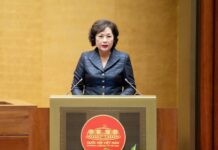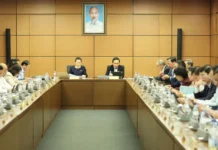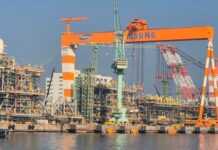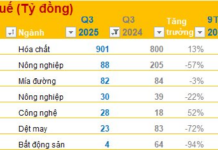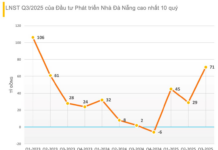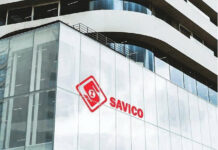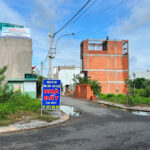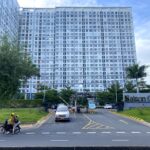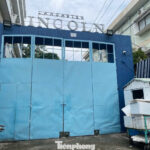The Ho Chi Minh City Department of Natural Resources and Environment has recently sent a dispatch to the city’s National Assembly delegation regarding the resolution of voters’ proposals after the 15th National Assembly’s 7th session, pertaining to the field of natural resources and the environment.
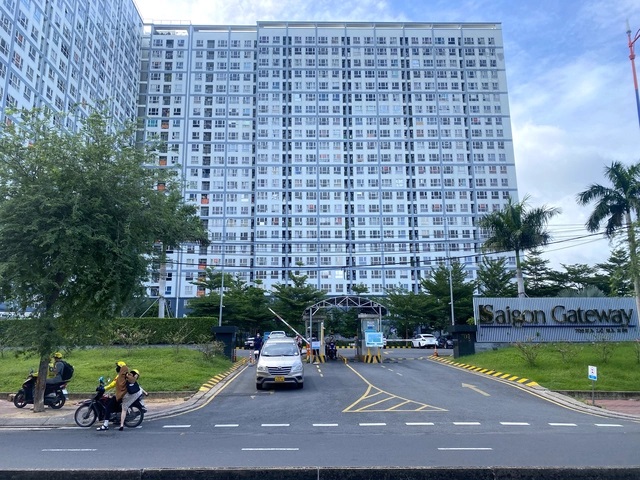
Over 81,000 apartments across hundreds of commercial housing projects are planned to have their obstacles removed and be granted pink books, but results have been limited over the past year.
|
In response to voters’ proposals, the Department of Natural Resources and Environment stated that there are currently delays in granting pink books to transferees in housing development projects, often due to certain causes and obstacles.
Firstly, during the implementation of investment construction of housing development projects, investors have, in some cases, constructed buildings that do not conform to the approved planning, design, or building permits, or have arranged and used items that deviate from their intended function.
The Department of Natural Resources and Environment has sent documents requesting the Department of Construction to promptly provide guidance and address issues within their domain, serving as a basis for granting pink books to transferees in accordance with regulations.
Secondly, during the project implementation process, investors adjusted the project planning, resulting in the need to determine additional financial obligations for investors to fulfill (if applicable) as per regulations.
Investors are responsible for contacting the Department of Natural Resources and Environment to receive guidance and determine additional financial obligations (if any) arising from project planning adjustments, thereby ensuring the fulfillment of financial obligations.
Thirdly, the land use right certificates of some projects have been mortgaged by investors at credit institutions and have not been discharged.
The Ho Chi Minh City Land Registration Office (under the Department of Natural Resources and Environment) has requested investors to promptly implement discharge procedures at credit institutions and submit the original land use right certificates as part of the pink book issuance process for transferees in these projects.
Lastly, some investors have failed to submit or have delayed submitting pink book issuance applications for transferees in their projects.
In such cases, the Department of Natural Resources and Environment used to consider and handle administrative violations committed by investors in accordance with Article 31 of Decree No. 91/2019/ND-CP, depending on the specific case and circumstances. However, Decree No. 91/2019/ND-CP has now expired, and there is no replacement decree yet. Once the new decree is issued, the Department will implement it accordingly.
|
Relocating Polluting Facilities Regarding the relocation of polluting facilities to other locations, the Department of Natural Resources and Environment shared that the Prime Minister has recently issued Decision No. 611/2024 approving the National Environmental Protection Planning for the period of 2021-2030, with a vision towards 2050. Based on this decision, the Ho Chi Minh City People’s Committee will develop an environmental protection plan for the city. The Department will then review the criteria of “inconsistent with planning, environmental zoning, and carrying capacity” to determine the appropriate handling of violations in the field of environmental protection. For facilities with potential environmental pollution risks that discharge wastewater into canals and channels, the Department of Natural Resources and Environment will coordinate with local authorities and relevant units to regularly inspect and monitor discharge activities in industrial parks and facilities that fall under the production, business, and service categories with potential environmental pollution risks. In case of any violations, the authorities will strictly handle them. Currently, all industrial parks and export processing zones in Ho Chi Minh City have installed automatic continuous monitoring systems that transmit data for the supervision and monitoring of wastewater quality after centralized wastewater treatment stations. Additionally, facilities with large sources of emissions (wastewater and exhaust gas) are also required to install automatic continuous monitoring systems that transmit data to the Department of Natural Resources and Environment for supervision and monitoring. |
Quoc Bao
Vietbank Strengthens the Three Pillars of Banking
The Vietbank Annual Report for 2023 once again emphasizes the bank’s unwavering commitment to its core values, with a strong emphasis on people-centricity. This report underscores how Vietbank envisions its role in fostering the growth and development of Vietnam’s banking system, with a human-focused approach at its heart.
The Vietnamese Economy Regains its Pre-COVID Growth Trajectory
Addressing the regular Government meeting for August 2024, held on September 7, Deputy Minister of Planning and Investment Tran Quoc Phuong stated that the economy has recovered positively, regaining its pre-pandemic growth momentum with notable improvements, especially in exports and FDI attraction.
Optimizing the Public Investment Law to Meet the Demands of the New Era
“As shared by Mr. Tran Quoc Phuong, Deputy Minister of Planning and Investment, the 2019 Public Investment Law has unveiled certain challenges and obstacles after nearly five years of implementation. Some provisions are now considered inadequate for the current practical situation and the new development requirements. Simultaneously, there are newly-issued pilot mechanisms and policies by the National Assembly that necessitate further research for institutionalization under the Law.”






